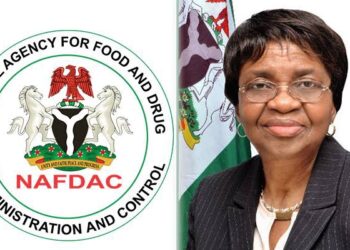The National Agency for Food and Drug Administration and Control (NAFDAC) has clarified that the exit of GlaxoSmithKline (GSK) pharmaceutical company is not the cause of the increase in drug prices in the country but rather the fall in the valuation of naira.
NAFDAC’s Director-General, Prof. Mojisola Adeyeye, made this statement in response to speculations regarding the impact of GSK’s departure on drug prices.
The clarification came during an event in Lagos on Friday, as reported by the News Agency of Nigeria.
Adeyeye explained,
- “The primary reason for the rise in drug prices is the depreciation of the value of the naira. Even before GSK’s planned exit from the country, there was a general increase in the prices of commodities, and some of the products that GSK manufactured experienced a decrease in supply.”
She also emphasized that NAFDAC encourages local manufacturing, and GSK had collaborated with local manufacturers, implying that they were not entirely reliant on imports.
The issue of foreign exchange, she noted, poses significant challenges for multinational companies like GSK, as repatriating funds becomes complicated.
Background
Looking back, in August, Nairametrics reported that GSK, a British multinational pharmaceutical and biotechnology company, announced the shutdown of its operations in Nigeria through an official statement signed by Company Secretary Frederick Ichekwai, which was sent to the Nigeria Exchange Limited (NGX).
According to GSK’s unaudited HY 2023 financial statement, the company had mentioned that it would appoint a local third-party distributor in Nigeria for the supply of its consumer healthcare products.
GSK had been operating in Nigeria for 51 years, having been incorporated in June 1971 and commencing business the following year.
The company had previously noted that challenges in accessing forex were disrupting the availability of drugs in Nigeria.
GSK had expressed its commitment to minimizing the period during which its products would be out of stock in the market, as ensuring patients’ access to medicines and vaccines remained a top priority.

























